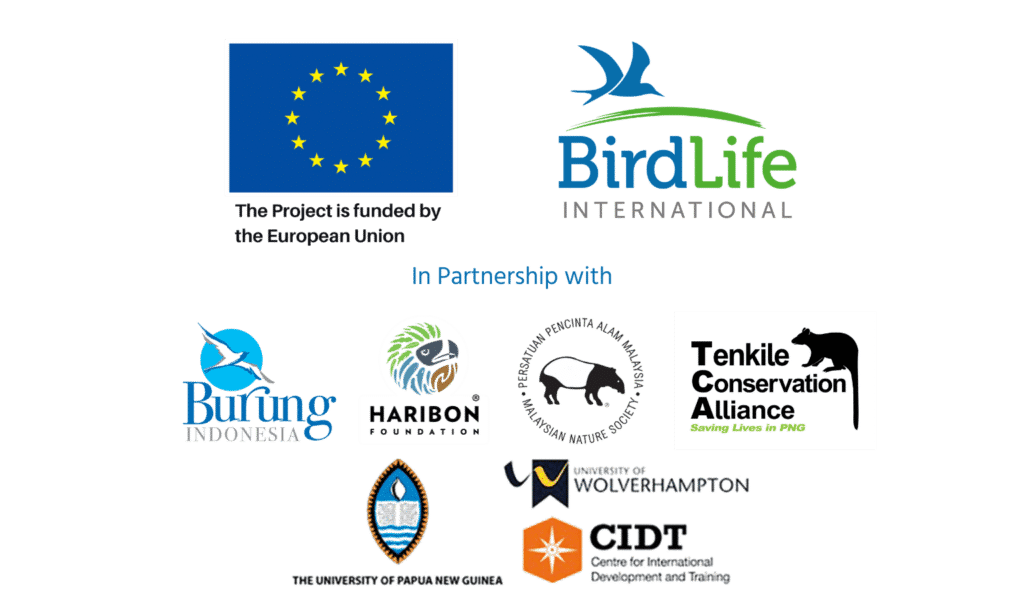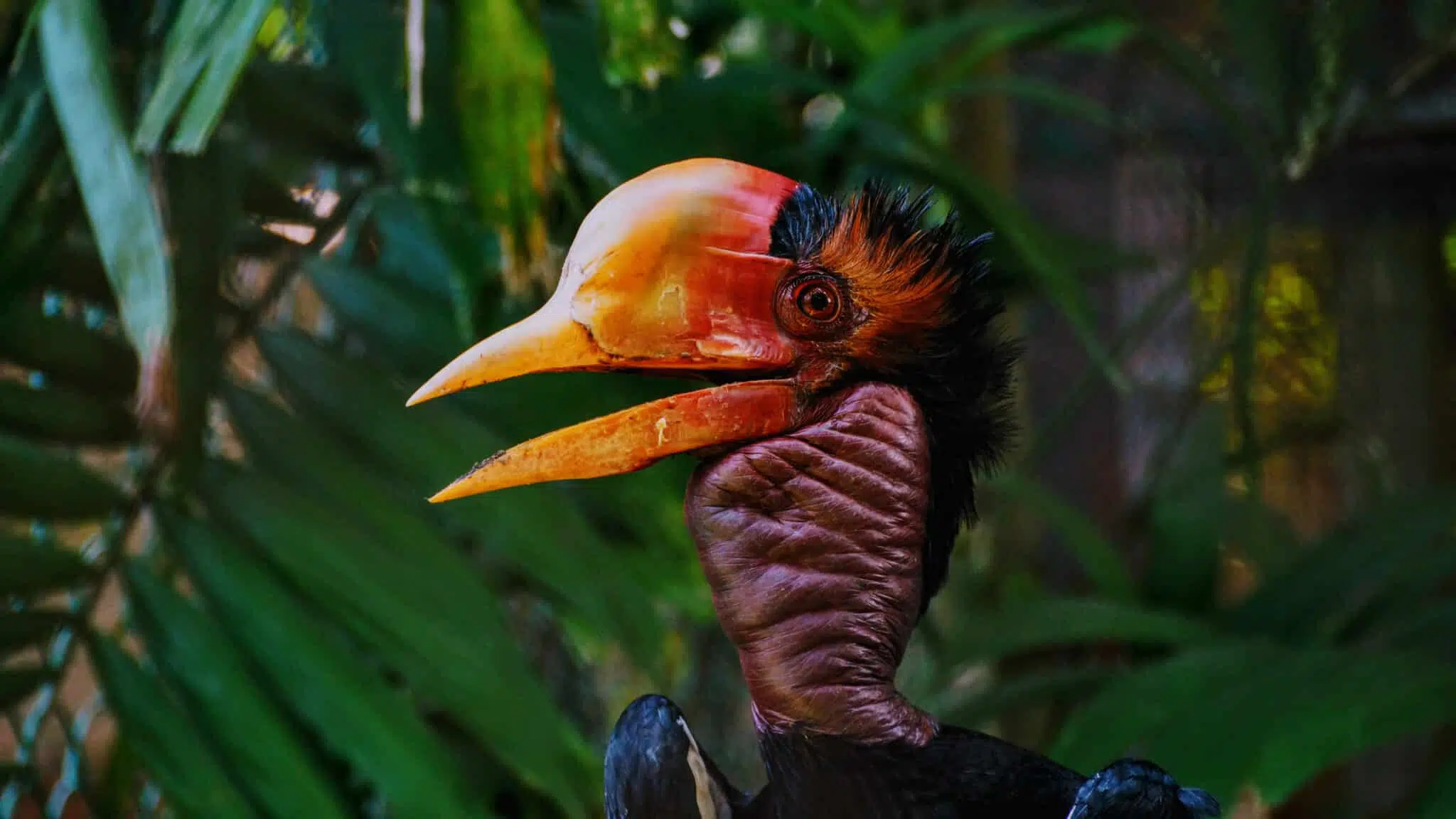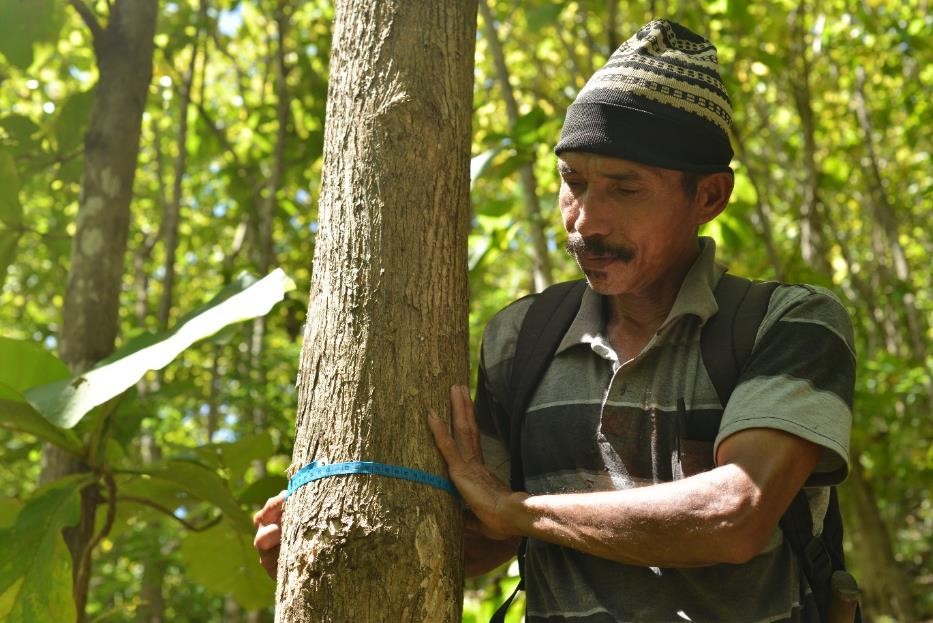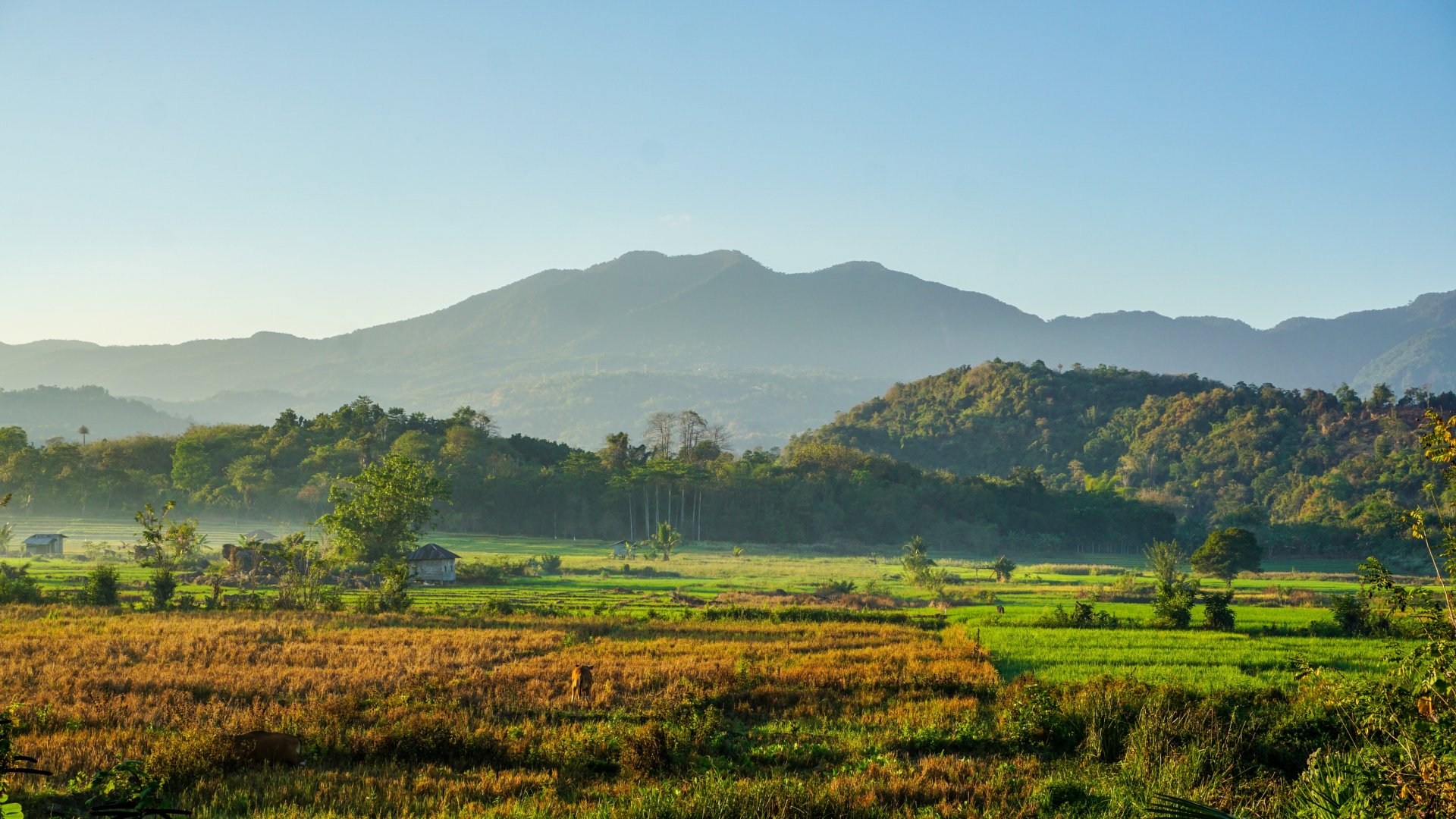Forests for the future: making a lasting impact for people and forests in Asia and the Pacific
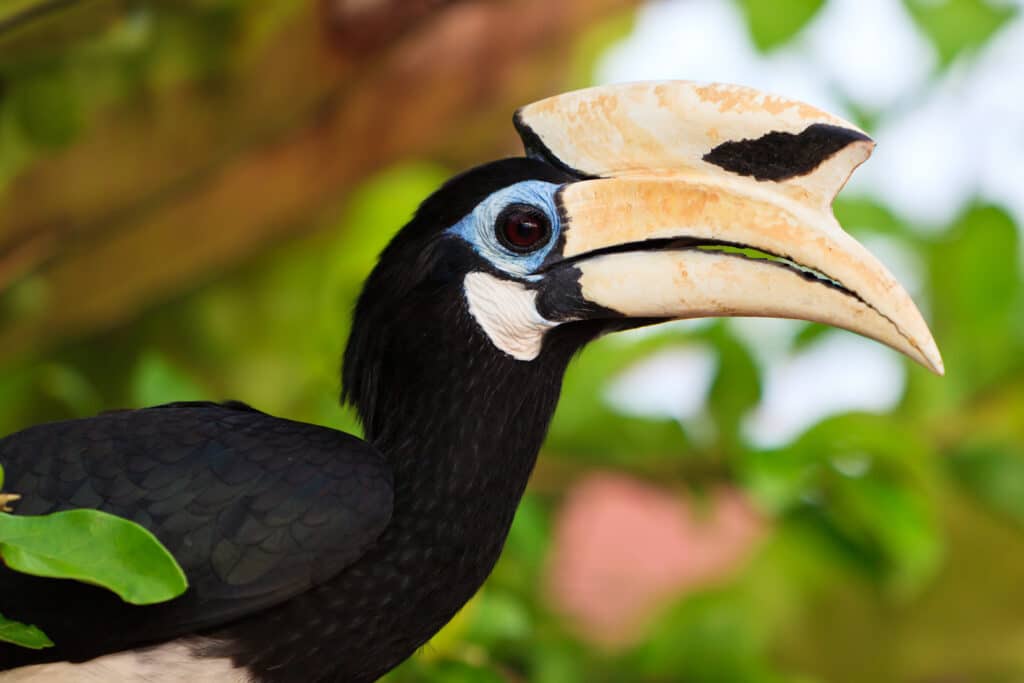
Local communities know their forests better than anyone, and nothing can replace their expertise in forest conservation. As the Forest Governance Project demonstrates, when given the opportunity they can create a better future for themselves and nature.
By Dr Poshendra Satyal, Global Forest Policy Coordinator, and Danielle Shaw
Header image: Palawan Hornbill is one of the Philippine’s 11 endemic hornbill species © Peter Wollinga / Shutterstock
A world without forests would be a world without life. Yet despite this well-known fact, it’s no secret that forests around the globe are under threat and disappearing before our eyes.
Forests across Asia and the Pacific are particularly special, teeming with an abundance of birds and other wildlife. Sadly, this has not been enough to spare them from deforestation and illegal logging, but in Indonesia, Malaysia, Papua New Guinea and The Philippines, this is starting to change thanks to local communities.
These countries all host an astonishing abundance and variety of plants, birds and other animals, many of these species found nowhere else on Earth. Indigenous peoples and local communities within these countries depend on the forests for their livelihoods, and many have a unique spiritual and cultural relationship with the forest.
Local people have been at the heart of the Asia-Pacific Forest Governance Project since its inception five years ago. They know the forests like no one else and their drive to protect them is strong, but it has been hindered until now by a lack of technical experience and political influence. Recognising this, the Forest Governance Project set out to empower and engage indigenous peoples and local communities, equipping them with the right skills to effectively manage their forests.
Dr Hum Gurung, Forest Governance Project Manager at BirdLife International, explains: “Our project partners have had a long experience working with local communities and indigenous people at the key sites, and this project really helped to build their capacities. They have worked closely with local and indigenous people and significantly contributed to their understanding and skills for forest monitoring, conservation and promoting forest-based products for their livelihoods.”
Inclusive and effective forest governance can also help towards implementing and achieving the climate targets of the Paris Agreement, the Sustainable Development Goals and proposed targets of the Global Biodiversity Framework to support an equitable, nature-positive and carbon-neutral future. For this reason, the conservation, restoration and sustainable management of forests has never been more urgent.
“The project has provided capacity development support to 50 organisations on forest governance practices and trained over 2,249 people on forest policy, planning, monitoring and licensing processes, with a 69% increase in number of staff and volunteers working on forest issues in supported organisations.”
Dr Poshendra Satyal, Global Forest Policy Coordinator
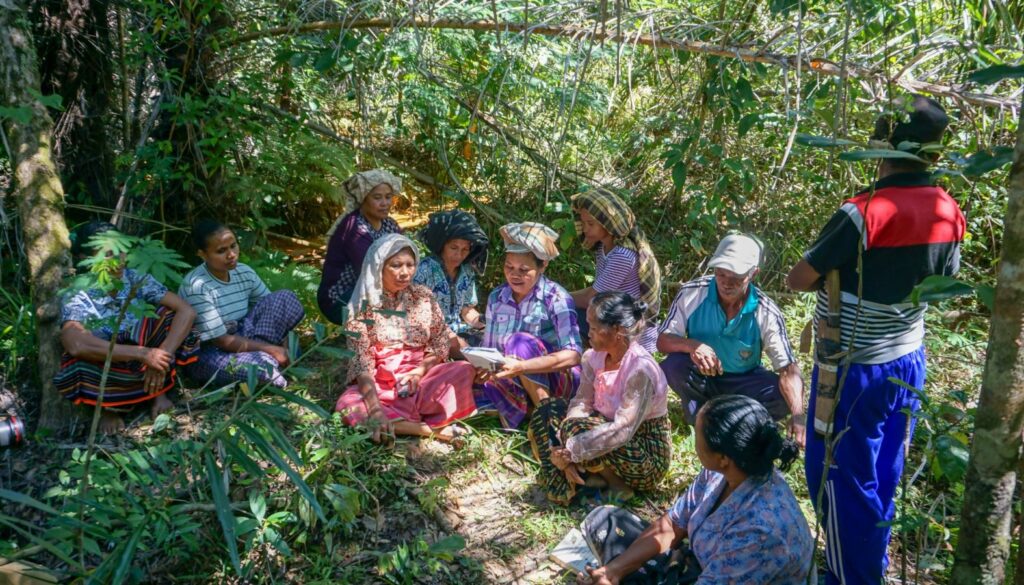
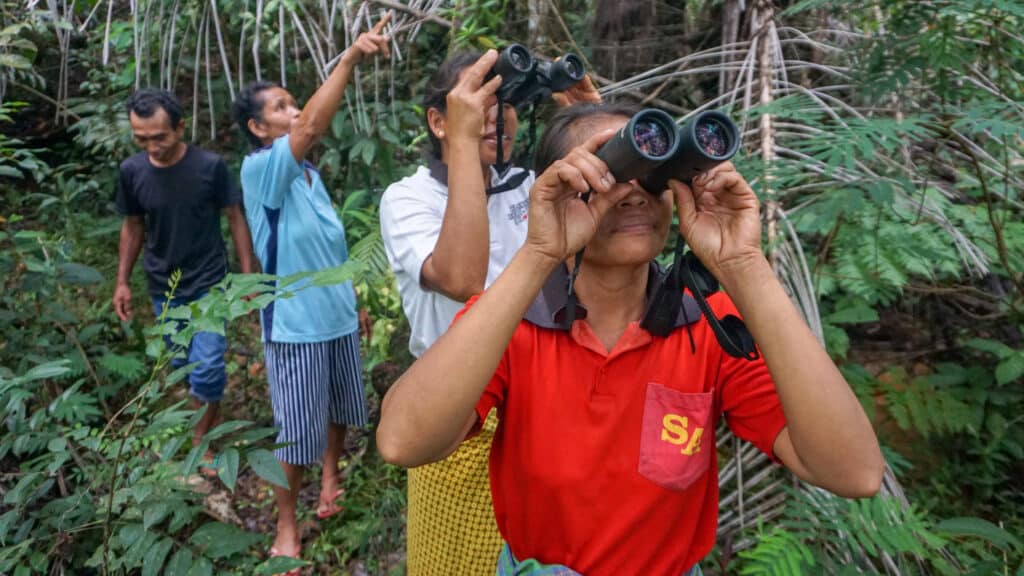
Indonesia
Indonesia boasts around 3% of the world’s forests and the country is home to an astounding 1,812 bird species. Ensuring these forests are managed sustainably has been an ongoing challenge, with conservation efforts having to compete with intensive farming and deforestation, often driven by poverty and the need for quick income being prioritised over protecting nature.
In Mbeliling, a highly biodiverse ecosystem on the island of Flores, Burung Indonesia (BirdLife Partner) has been working with local communities to ensure that conservation efforts protect the forest while also benefitting the people who live there. Community participation has been central to its work, involving villagers in the process of identifying threats to the forest and local livelihoods, and deciding together how to manage them.
A committee selected by local people ensures that the work is carried out, and these agreements are recognised by government policy makers. To keep track of progress, regular monitoring in the area is carried out and reported to Burung Indonesia and the government.
This sounds good in theory, but does it result in positive change? Monitoring in the area has shown reduced threats to wildlife, particularly birds, and the community has a better understanding of how a healthy environment also means a healthier life for them. Local livelihoods have also benefitted from eco-friendly business opportunities, such as exporting sustainable timber – which is supported by the provision of timber processing machines, protective equipment and official training for workers.
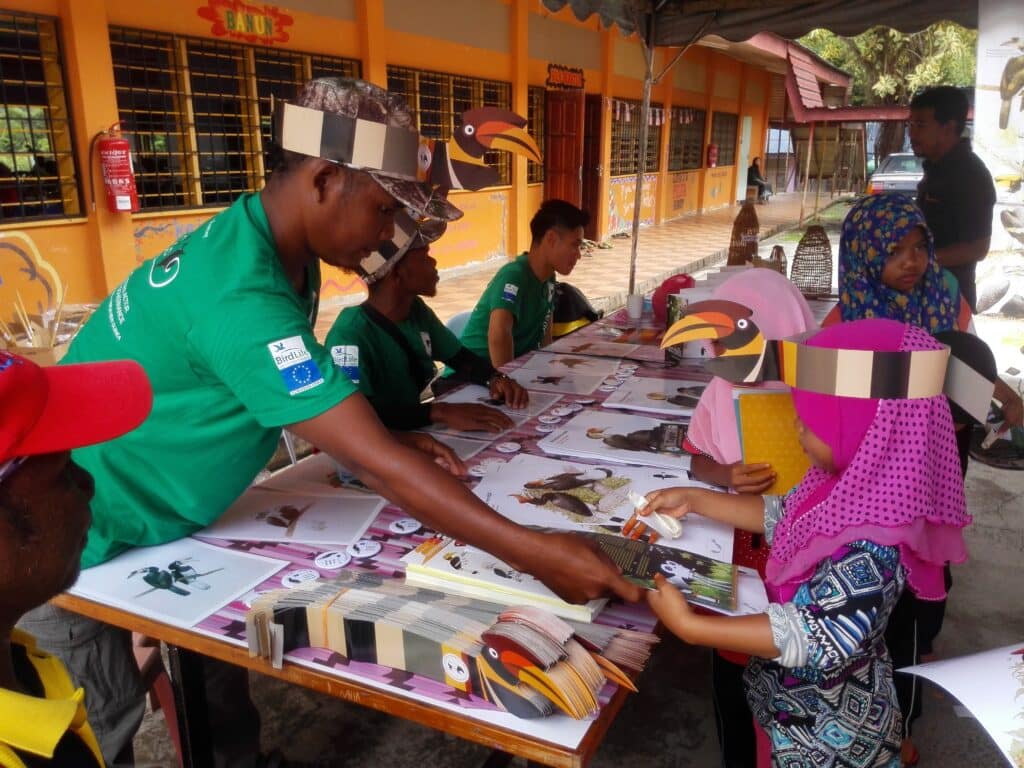
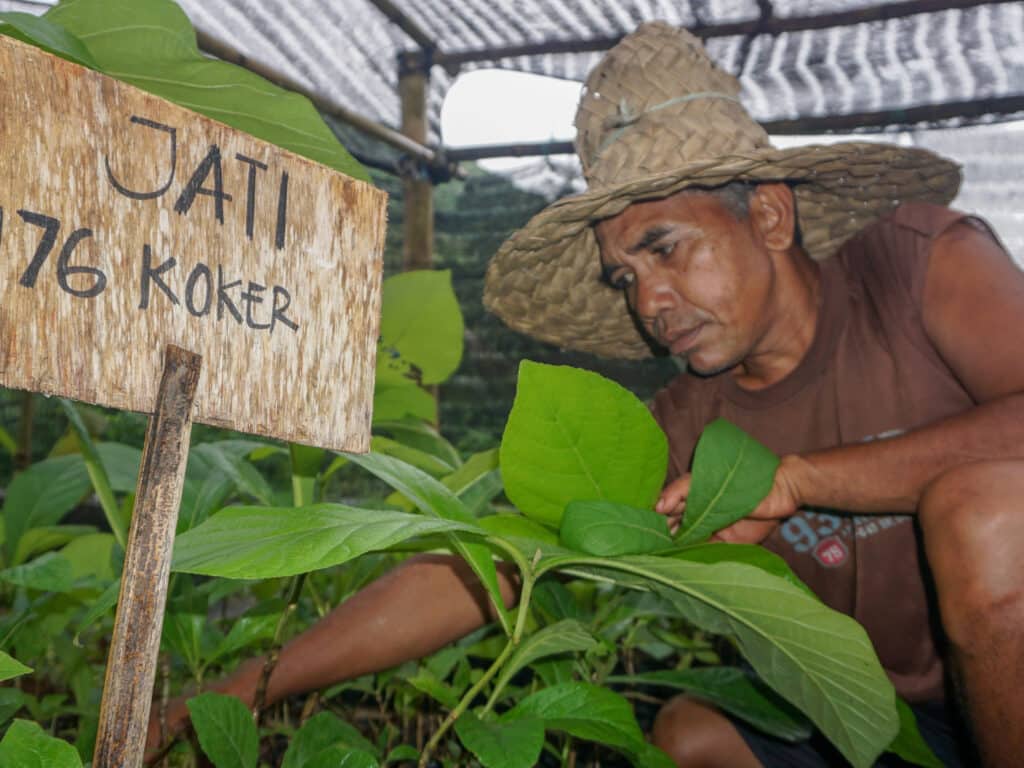
Malaysia
More than half of Malaysia is covered by forest, but deforestation remains a huge threat to its survival. A key challenge has been striking a balance between economic development and sustainability, as the country’s economy is heaving dependent on forest resources. This challenge is further intensified by a lack of forest governance.
As part of the Forest Governance Project, the Malaysian Nature Society (BirdLife Partner) launched a national ‘Forest Watch’ platform to allow local communities to access up-to-date information on forest cover change, forest fires, illegal logging and other forest threats to support their conservation efforts. In addition, it has initiated numerous workshops to educate on forest governance issues and provide forest policy training for local communities and indigenous peoples.
Community-based forest monitoring in Peninsula Malaysia’s Central Forest Spine and the heart of Borneo is also contributing to the conservation of forests and the species within them. It is also empowering local communities, particularly the Orang Asli indigenous people. They assess the condition of the forest by engaging local ‘Hornbill Guardians’ and volunteers, who conduct regular hornbill monitoring of the eight species found in Borneo, recording sightings of nests, fledglings and the number of young chicks and adult birds.
Additionally, the Malaysian Nature Society’s involvement and experience in forest policymaking, including REDD+ readiness processes show that non-state actors can play an important bridging role in addressing scalar and sectoral gaps and securing policy integration.
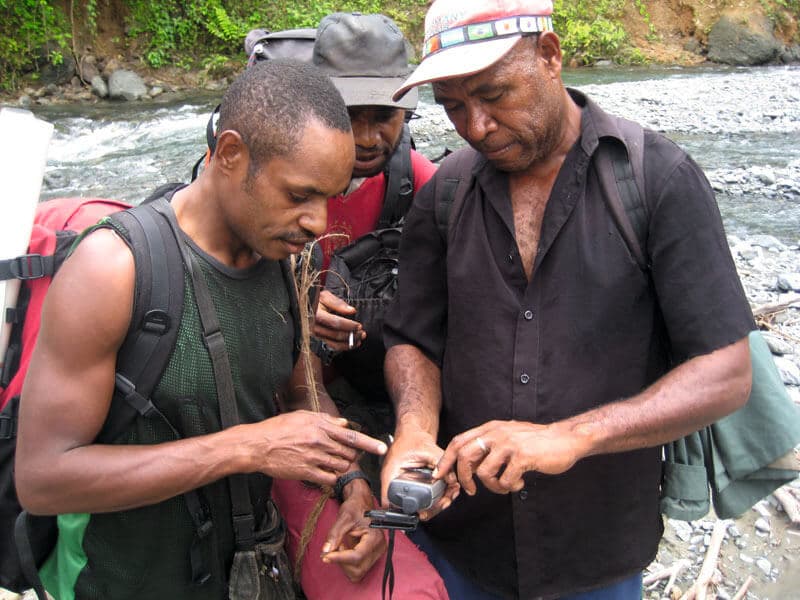
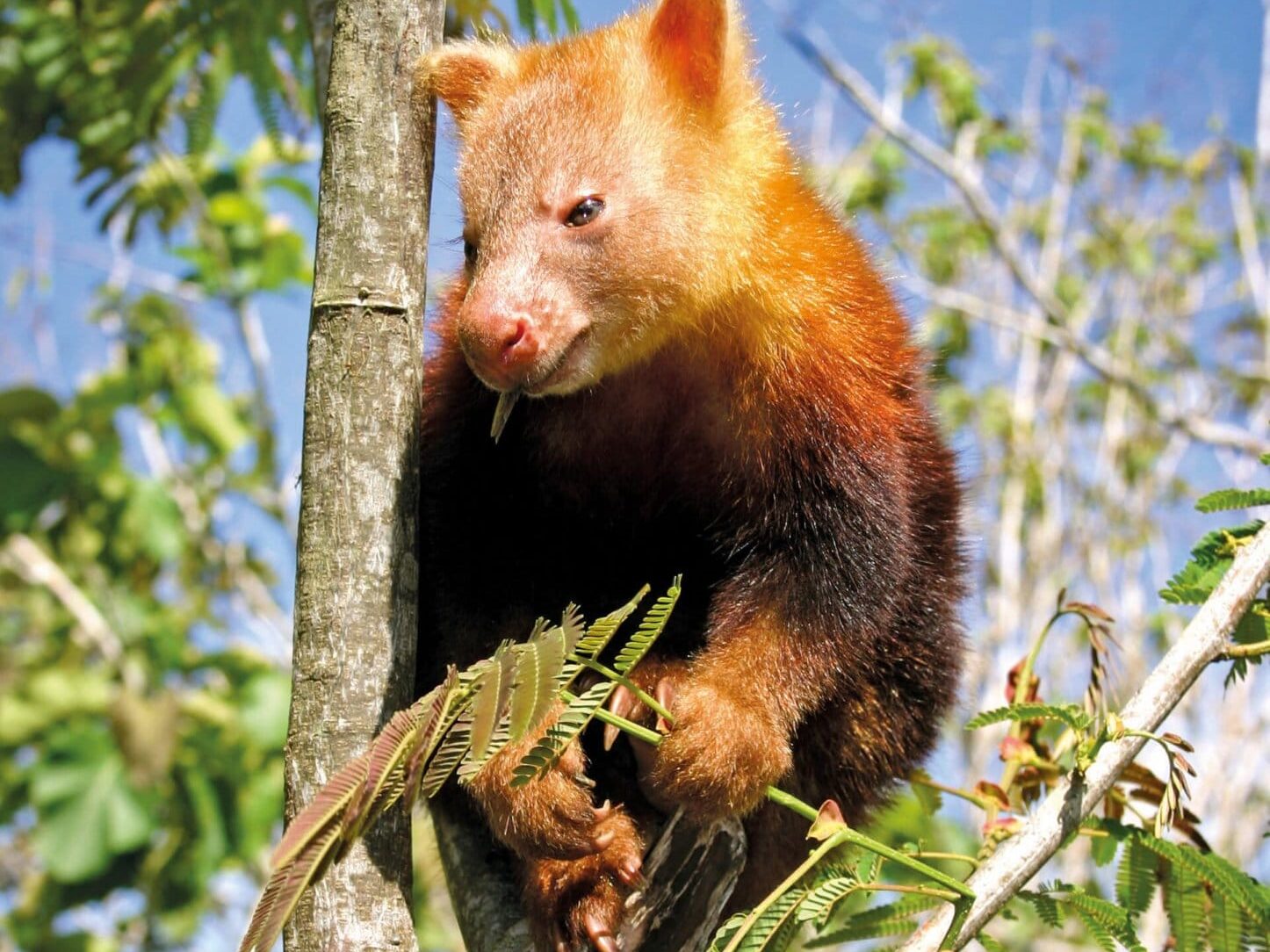
Papua New Guinea
Most forests in Papua New Guinea, which are home to 39 species of birds-of-paradise along with many other endemics, are owned by local communities or tribes who depend on them for food and shelter. However, vast swathes of forest are still being degraded by commercial logging enterprises and cleared for agricultural use, such as for oil palm plantations.
To encourage and enable communities to sustainably manage their forests, the Tenkile Conservation Alliance (TCA) has helped them to understand the value and benefits of doing so. This approach has led to communities changing their behaviours, all made possible by training provided by TCA and technical support from the University of Papua New Guinea. Genealogy to trace their ancestors’ villages has enabled community members to draw land boundaries and sign landowner agreements, strengthening their ability to effectively manage and monitor their own land.
Some landowners have since taken steps to stop illegal logging on their land, aided by technical training. In addition, TCA has introduced new livelihood opportunities, such as raising chickens or growing rice and vanilla, so that communities no longer rely on hunting endangered forest wildlife.
To ensure this approach is working, TCA and the communities monitor the number of tree kangaroos in the area. This provides an insight into the condition of the forest, as well as forest cover and forest resource use. This information has since supported land-use planning decisions as well as informing the country’s forest policies.

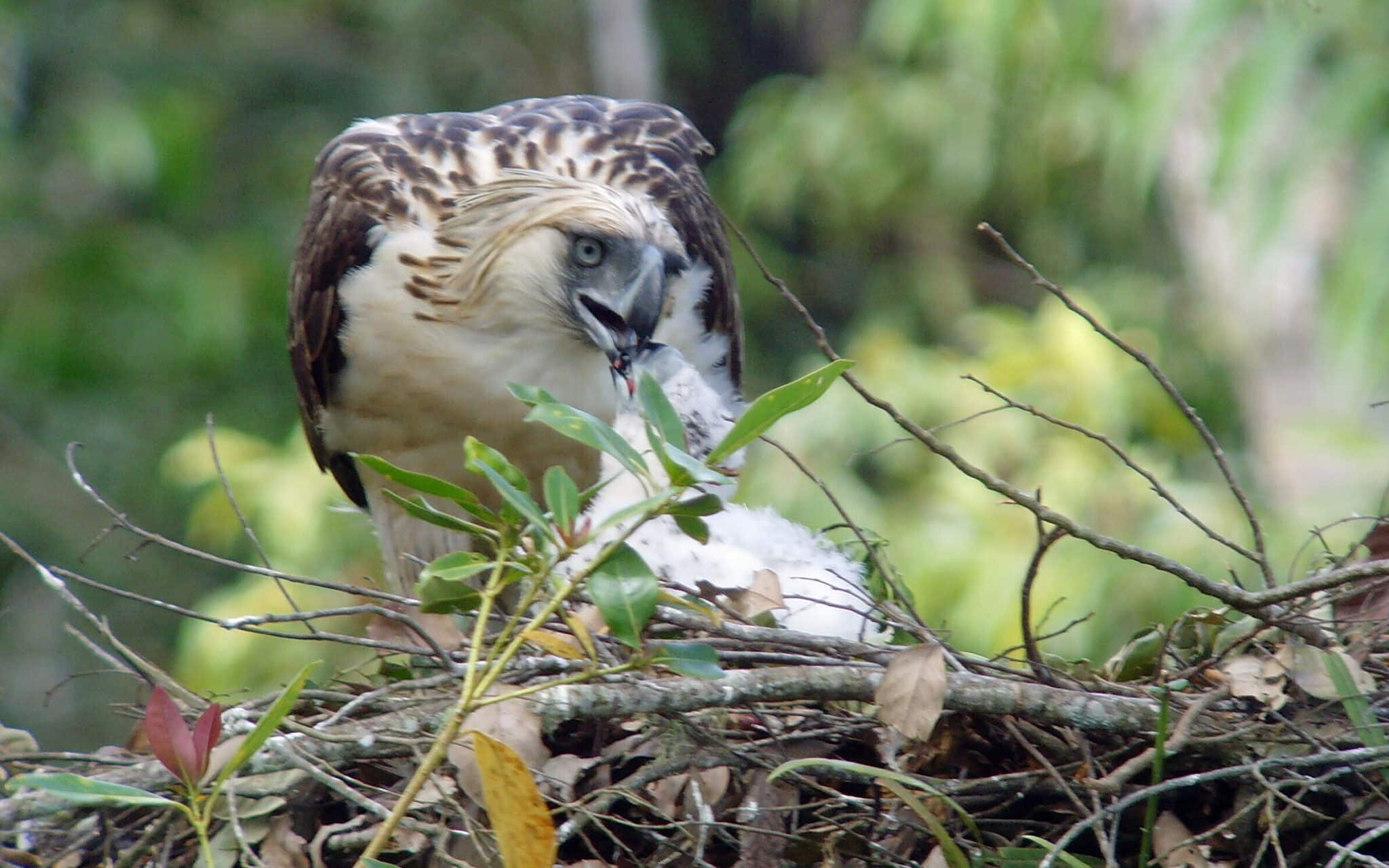
The Philippines
The Philippines is considered a biodiversity hotspot due to the abundance of wildlife found in the country, including over 641 bird species. Their future hangs in the balance, however, as the country’s rate of tropical deforestation is one of the highest in the world due to logging, mining and land conversion driven by poverty.
Determined to turn things around, the Haribon Foundation (BirdLife in the Philippines) has transformed local people into proactive forest defenders, or ‘bantay gubat’, who now lead forest conservation efforts. These forest defenders received training on topics from reading and writing, financial management and environmental law to organic farming and reforestation techniques. The KaPatrol mobile app launched by Haribon in 2021 enables bantay gubat and other citizens to report threats to the forests, enhancing communication between local people and wildlife authorities.
“One of Haribon’s proudest achievements from this project is safely and successfully integrating modern conservation practices with the indigenous tribes’ knowledge and rituals, despite being limited by several factors such as difference in cultures, disparity in educational attainments, and the restrictions in all aspects brought about by the COVID-19 pandemic,” said Mita Chabeli Pangan, on behalf of Haribon’s Forest Governance Project team.
“From being unable to read or write, the tribal communities Haribon has worked with now have active roles in forest governance initiatives with their respective local government units, are already using the latest technology for monitoring, protection and communication, and are managing biodiversity-friendly businesses – all while still retaining the sustainable traditions they inherited from their ancestors.”
Looking to the future
As the Forest Governance Project reaches its end, the results from the five years of hard work across these four countries is further proof that local people are the answer to effective, impactful forest conservation. The project may be over, but the work is far from finished – local communities are in it for the long haul, to protect their forests for generations to come.
To find out more, read our Project Impact Report here or the policy briefs for Indonesia, Malaysia, the Philippines and Papua New Guinea.
Click here to explore the extent of forest loss across each of the four countries, the drivers of change, and the value of good governance in addressing these challenges.
“Through the advocacy tools and training provided by BirdLife, Haribon got involved in policy lobbying for mainstreaming biodiversity issues in the country’s revised Sustainable Forest Management Bill and developed a Policy Advocacy Strategy, which was updated each year and identified a range of like-minded non-state actors for advocacy coalitions and used a range of tools and tactics. These efforts have influenced the content of the Bill, although it is still proceeding through the legislative process. Their engagement and experience show that non-state actors can work not only as effective advocates but also as facilitators between the people and the state actors.”
Dr Poshendra Satyal, Global Forest Policy Coordinator
More about the project
Title: Strengthening non-state actor involvement in forest governance in Indonesia, Malaysia, the Philippines, and Papua New Guinea
Lead Partner: BirdLife International
National Partners: Burung Indonesia (BirdLife Indonesia); Malaysian Nature Society (BirdLife Malaysia); Haribon Foundation (BirdLife in the Philippines); Tenkile Conservation Alliance (Papua New Guinea).
Training and Technical Partners: University of Papua New Guinea; Centre for International Development & Training
Funded by: European Union
